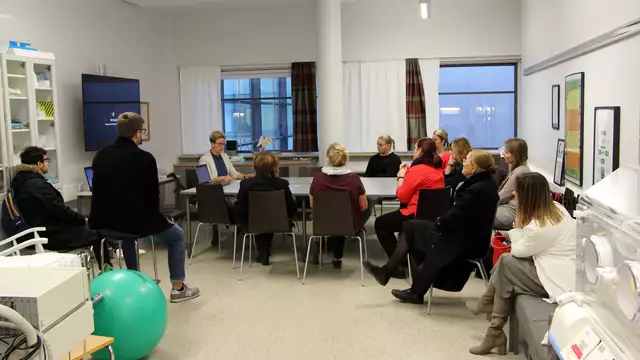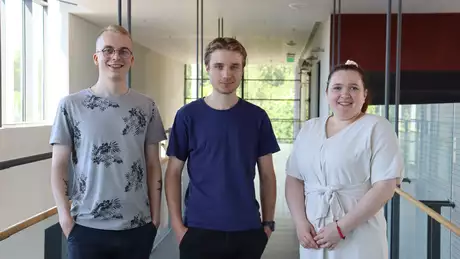
An international project led by Arcada UAS has developed two new curricula for home care nursing students. In the future, students will learn both stress management and the use of e-services in home care.
In Finland, Sweden, Latvia and Estonia the home care sector faces similar challenges: a growing aging population, regional shortage of home care providers and difficulties in attracting students to the profession. In addition, e-services are becoming increasingly important in home care, and knowledge about e-services is needed by both staff and students.
For the past three years, Arcada has served as the lead partner in a home care nursing project together with Rīga Stradiņš University, Tallinn Health Care College and Mälardalen University. The NURED project (“Nurse” + “Education” + “Development”), funded by the EU through The Central Baltic Programme, has produced two new curricula in home care education for assistant nursing and nursing students in the Baltic Sea region.
On November 14, the project's final seminar was held at Arcada University of Applied Sciences in Helsinki, where the new curricula were presented. Parts of the of curriculum (16 ECTS) have already been implemented by the partner universities, says project member Anu Grönlund, degree programme director for Public Health Nursing at Arcada and doctoral student at Mälardalen University.
- When developing the new modules, we took into consideration what the situation in the working life is like, and what skills home care nurses say they lack. Students' feedback has also developed the content in the curricula. Unlike earlier, for example, more hands-on multi-professional collaboration exercises are included in the new curricula.
Four focus areas
The goal has been to provide home care nursing students with new and improved curricula that will promote lifelong learning, improve stress and time management skills, increase motivation and reduce the amount of student dropouts.
The new curricula focus on four areas: team work and professional skills, occupational stress and stress and time management, e-services and e-products, and pedagogical attitude and way of work (PFA) in intellectual disability practice in the home care context.
At the beginning of the project, a questionnaire was sent out and answered by more than 700 professionals in the home care sector in the partner countries. Based on the results, the new curriculum modules were developed.
- What was surprising, or rather alarming, to find out was that those working in home care say they are tired and worried about their future in home care nursing. Therefore, we also have a new module that deals with stress management, so that students will be provided with tools to make the workload manageable.
The curricula modules were developed in collaboration by the various universities and tested by all partners, but each country also had its own focus area. In Finland, the focus was on developing module 1, i.e. team work and professional skills. The questionnaire for home health care providers showed that the various occupational groups in home care were not aware of each other's tasks and how they could work effectively by using each other's strengths. The aim is that the new curricula will change this.
- From 2021 when we start introducing a new syllabus for health education, we will systematically implement the new curriculum. The idea is not that the universities should be forced to use the whole new curriculum. They may choose to use it partially. For Arcada, it could become part of the nurses' in-depth studies or in-service training.
The new curricula will soon be available to everyone in English online, and Arcada's collaboration with the partner universities will continue through a Nordplus network.
- Having worked with different cultures for a long time has taught us a lot. We have been able to benefit from each other's knowledge and will continue to work together in the future, starting from home care nursing, says Grönlund.


